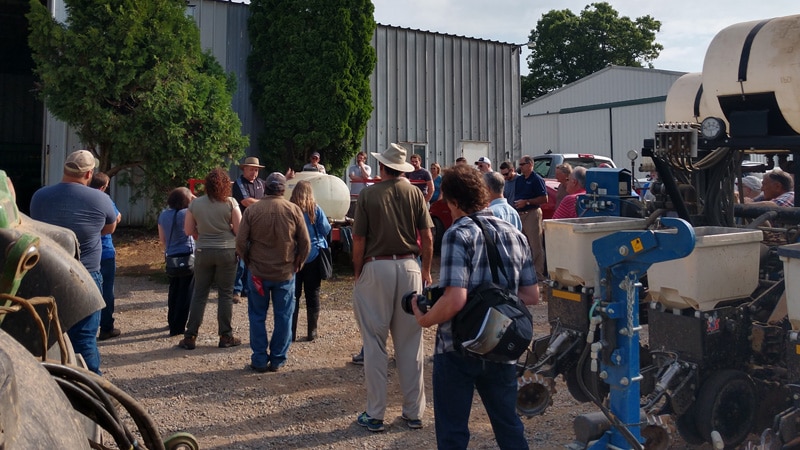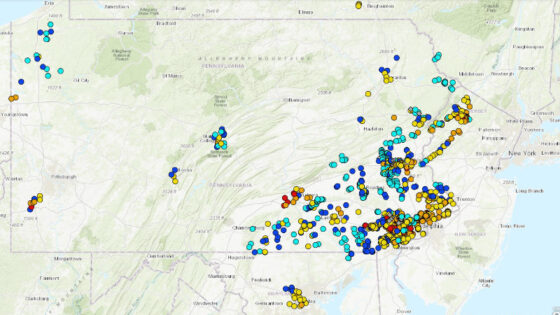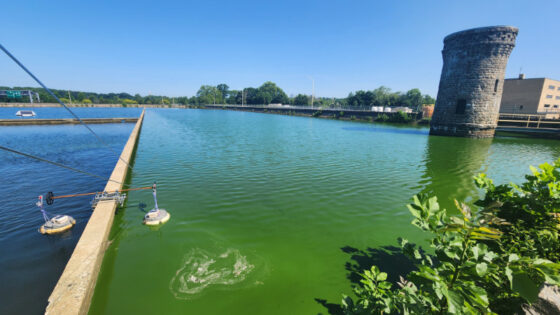
By Tyler Bowdoin, Communication Department Intern

Create habitat, protect water, and explore the outdoors: these are the guiding principles and action steps that dictate the Lancaster Conservancy’s Water Week. Half of Lancaster’s streams are impaired, and Lancaster Water Week helps to raise awareness for these streams while engaging the general public with fun events.
Stroud Water Research Center served as a sponsor for Lancaster Water Week 2019, while also playing a direct role in some of the events held throughout the week, including the Streamside Care Workday; the special lecture on Dr. Ruth Patrick, “A Pioneer in Science: The Conestoga Study and the Woman Behind It;” the Millersville Native Plant Conference; and the Healthy Soils and Streams Breakfast.
Streamside Care Workday
Lamonte Garber, watershed restoration coordinator for the Stroud Center, led one of the sites on the Streamside Care Workday and was joined by his group of approximately 15 volunteers to work on an Amish farm near Strasburg. Garber started off the morning with an overview of how trees impact streams and why they are necessary to maintain good stream health.
Garber and his team then spent the rest of the morning planting trees, replacing broken stakes, assisting in tree shelter maintenance, and restaking trees following floods. The volunteers learned about the necessity of tree buffering while actively helping to maintain the existing buffers around a local stream.
Sophia Martin, a college senior who volunteered at the workday, liked the structure of the workday. She said, “I really appreciated the hands-on, tangible nature of this event as opposed to just discussing these environmental problems.”
Native Plant Conference
Garber also spoke at Millersville’s Native Plant Conference, discussing a myriad of topics related to fresh water. Nearly 60 people attended Garber’s lecture to learn about how aquatic insects can be used as indicators of stream health, how trees provide food and habitat for macroinvertebrates, and various conservation strategies.
The audience was “already knowledgeable about native plants,” said Garber, so “I hope that I instilled a greater sense of how important native trees and shrubs are to the life of streams, including macroinvertebrates.”
Ruth Patrick Lecture
The Stroud Center and Millersville University’s Watershed Education Training Institute co-hosted the lecture on Dr. Ruth Patrick. Bern Sweeney, Ph.D., discussed Dr. Ruth Patrick’s trailblazing career as a female scientist, as well as her groundbreaking research from the Conestoga study. The lecture demonstrated the impact one individual can make in the science community, with Dr. Patrick breaking down barriers both as a female scientist and as one of the first to look at freshwater systems as a whole.
“It was fascinating to learn about this leading scientist who worked at a time when few women had the opportunity to participate in science,” said Marcy Hostetler, a school teacher and Lancaster resident. Hearing about “[Dr. Ruth Patrick’s] story really inspired me to do my part” in engaging women in STEM.
Healthy Soils and Healthy Streams Breakfast
The Stroud Center, the Alliance for the Chesapeake Bay, the Lancaster County Agriculture Council, the Pennsylvania No-Till Alliance, and the Lancaster County Chamber of Commerce and Industry hosted the Healthy Soils and Healthy Streams Breakfast, which was attended by businesses in Lancaster County and by the general public. This event was held at the farm of Cover Crop Coach Steve Groff. Groff offered an introduction to cover crops and a discussion about how no-till farming can improve soil health and have a positive impact on the watershed. After the breakfast, attendees had the opportunity to walk along Tucquan Creek, one of Lancaster County’s cleanest streams, which runs through Groff’s farm.
Whether learning about soil health, riparian buffers, best management practices, or the history of a pioneer of freshwater science, attendees at Lancaster Water Week events learned how they can help to make a positive impact on our freshwater resources.




